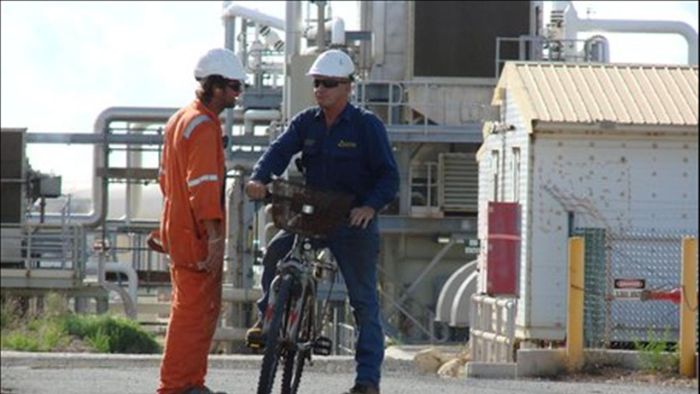
Miners worried a new Senate may not pass its IR and budget wish-list
Updated
The Australian Mines and Metals Association (AMMA) says the possibility of a hung parliament does not auger well for industrial relations reform.
Policy director Scott Barklamb is concerned that if Labor forms a minority government, proposed measures in the recent federal budget will not be passed.
“For Australia to be competitive and stake out it’s place in the world, we need certainty,” he said.
Whomever forms government needs to address the very real problems in our industrial relations.
Scott Barklamb, policy director, AMMA
“Above all we need good policy regardless of the political process.”
AMMA is a lobby group for the mining, oil and gas industry and has a particular focus on industrial relations.
Mr Barklamb said although there was a paucity of detail from both major parties on IR reform, the Coalition clearly had the better plan.
“It wanted to regulate the building and construction industry through the restoration of the ABCC, and to ensure proper governance and accountability of registered organisations.”
The refusal of the Senate to pass the bill to reinstate the Australian Building and Construction Commission and the Registered Organisations Bill triggered the double dissolution election.
“In contrast, Labor’s plan was simply to further regulate, create additional (wages) penalties and punish employers.
“Whomever forms government needs to address the very real problems in our industrial relations and provide more certainty for employers to invest in the country.
Mr Barklamb said he would be very concerned about a hung parliament not processing critical reforms like industrial relations and budget measures.
“If we have a senate that is so dysfunctional it can’t process the basic machinery and fuel of government, money, then we should be going back to the polls.”
Return of construction industry watchdog ‘very unlikely’
Deputy director of the Australian Centre for Management and Organisational Studies at the University of Technology, Sydney, Dr Damian Oliver is doubtful neither the Registered Organisations Bill or the ABCC bill will pass the new parliament in a joint sitting.
That’s without paying particular attention to precisely who is going to be sitting in the new Senate
Dr Damian Oliver, Univserity of Technology, Sydney
“The Coalition simply has not done well enough, even if they are returned to government, to convince both Houses of the need to get those bills through a joint sitting,” he said.
“So the ABCC will not be reinstated which will mean that the Fair Work building and construction unit, which is within the Fair Work Commission, which at the moment is tasked with policing and overseeing the construction sector, will continue.”
In December 2015 the Productivity Commission handed down a report into the existing workplace relations frame work.
One of the recommendations it made was changes to enterprise bargaining on new build projects, also known as greenfields sites.
Currently enterprise bargaining agreements cover periods of three and four years only, so renegotiation is often at a critical stage of construction.
AMMA and oil and gas lobby group APPEA have lobbied for a number of years for greenfields agreements to cover the whole life of a construction project, a measure Dr Oliver believes may be agreed to in the new Senate.
“If anything IR reform is likely to get through somehow in the next parliament, it might be in relation to that particular issue.
“The current arrangement gives, not complete veto of power, but something close to one, and it certainly guarantees unions a stake in the process.
“It could get up, but that’s without paying particular attention to precisely who is going to be sitting in the new Senate.”
Topics:
First posted
